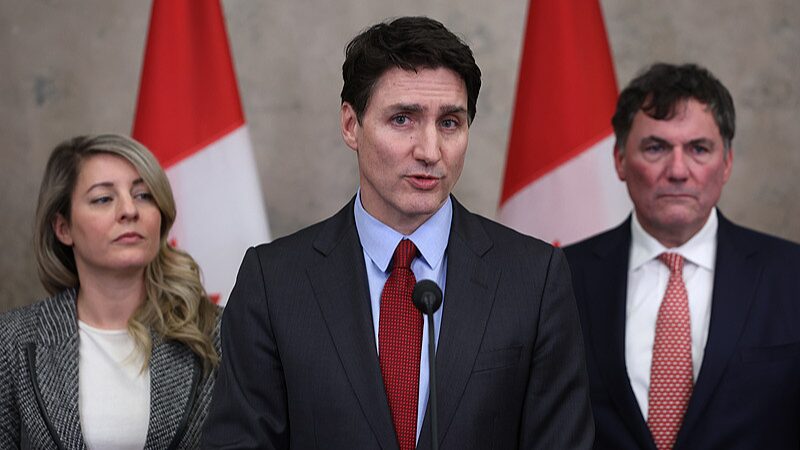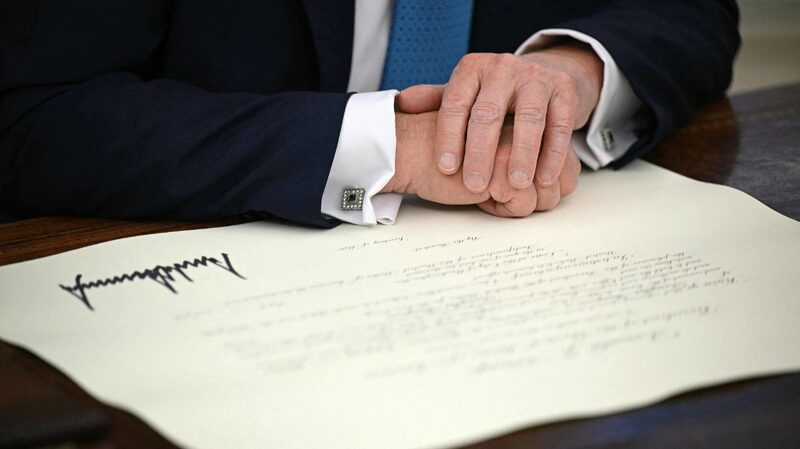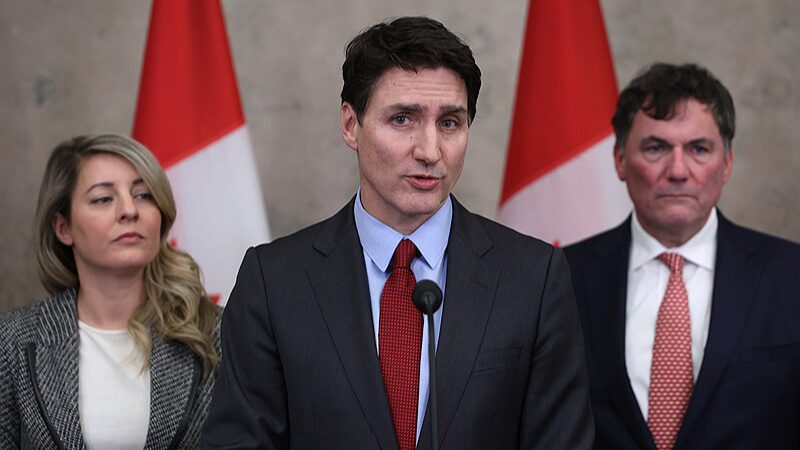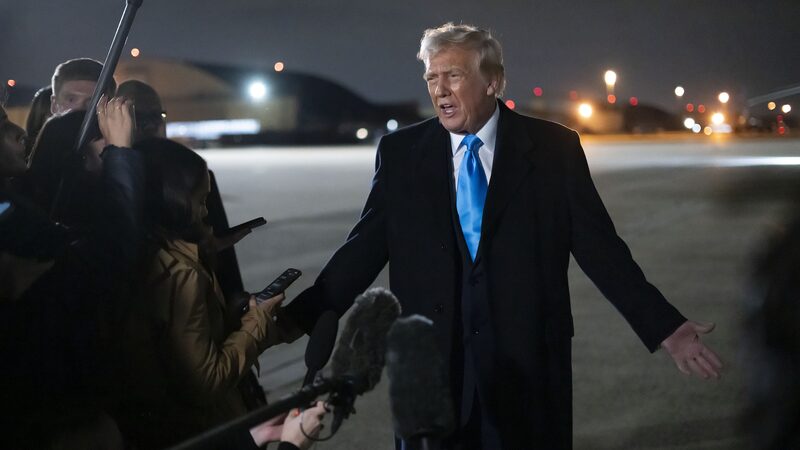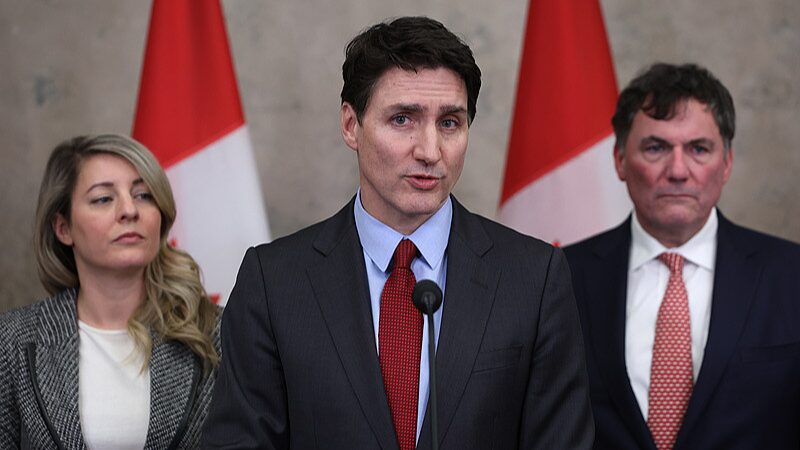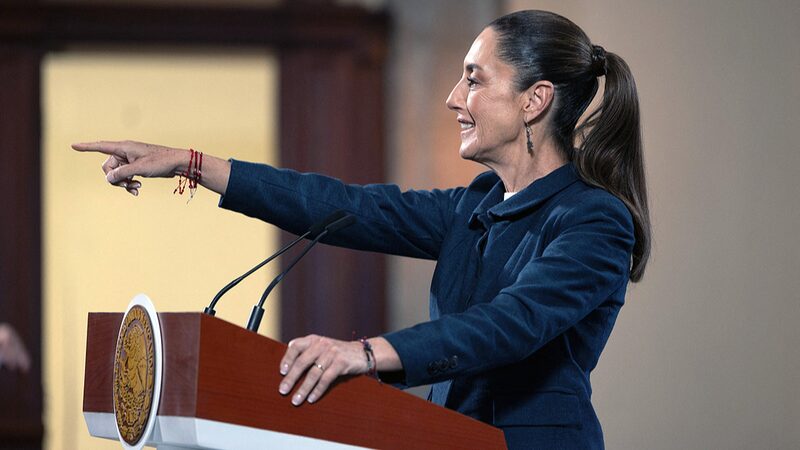By KhabarAsia.com Staff Writer
U.S. President Donald Trump signed an executive order on Saturday imposing a 25-percent additional tariff on imports from Canada and Mexico and a 10-percent tariff hike on imports from China, effective February 4.
In swift retaliation, Canada announced a 25-percent levy on C$30 billion ($21 billion) worth of American goods starting Tuesday, with plans for an additional levy on C$125 billion worth of goods in 21 days. Mexican President Claudia Sheinbaum vowed to implement both tariff and non-tariff measures to protect Mexico's interests. Meanwhile, China's Ministry of Foreign Affairs, Ministry of Commerce, and Ministry of Public Security strongly opposed the U.S. tariffs under the pretext of fentanyl-related issues, stating intentions to file a complaint with the WTO and take countermeasures to safeguard its rights and interests.
The latest U.S. trade protectionist measures have sparked widespread opposition. Analysts warn that the sweeping tariffs and subsequent retaliatory actions could fuel inflation, drive up consumer prices, lead to job losses in the United States, and disrupt global economic activity.
Economic Impact in Numbers
A report issued on January 31 by the Tax Foundation, a U.S. think tank, projects that Trump's tariffs—25 percent on Canada and Mexico, and 10 percent on China—would shrink U.S. GDP growth by 0.4 percent. The tariffs could increase taxes by $1.2 trillion between 2025 and 2034, translating to an average tax hike of more than $830 per U.S. household in 2025.
EY Chief Economist Greg Daco predicts that Trump's tariff plan would reduce U.S. economic growth by 1.5 percentage points this year, push Canada and Mexico into recession, and usher in stagflation in the U.S. The Canadian Chamber of Commerce warns that the imposition of 25-percent tariffs and full retaliation could lead to a 2.6-percent decline in Canada's real GDP, costing an average of C$1,900 per household annually. In the United States, GDP could fall by 1.6 percent, costing an average of $1,300 per household.
Mexican President Claudia Sheinbaum previously stated that Trump's tariffs could cost 400,000 U.S. jobs and drive up consumer prices for U.S. consumers. In mid-January, the World Bank cautioned that a broad 10-percent tariff hike by the U.S. could reduce already lackluster global economic growth by 0.3 percentage points if America's trading partners retaliate. A January 2021 study by the U.S.-China Business Council revealed that trade policies during Trump's first term resulted in the loss of 245,000 American jobs.
Global Reactions and Criticism
The Wall Street Journal editorial board on January 31 called the Trump administration's imposition of tariffs on Canada, Mexico, and China "the dumbest trade war in history." The editorial stated, "Mr. Trump sometimes sounds as if the U.S. shouldn't import anything at all, that America can be a perfectly closed economy making everything at home."
Friedrich Merz, chairman of the German Christian Democratic Union, commented, "Tariffs have never been a good idea to resolve trade policy conflicts," warning of backlash in the U.S. as rising import costs would fuel inflation and directly hit American consumers.
A spokesperson for China's Ministry of Foreign Affairs emphasized on Sunday, "There is no winner in trade and tariff wars." The spokesperson added that the U.S.'s unilateral tariff hikes severely violate WTO rules and that such measures will not solve domestic economic problems in the U.S., nor will they benefit any side—let alone the global economy.
Looking Ahead
As nations brace for the economic repercussions of escalating trade tensions, global markets remain on edge. The long-term effects of these protectionist measures could reshape international trade dynamics, impact global supply chains, and alter economic growth trajectories worldwide. Stakeholders across industries are closely monitoring developments, hoping for diplomatic resolutions to avert further economic downturn.
Reference(s):
cgtn.com


